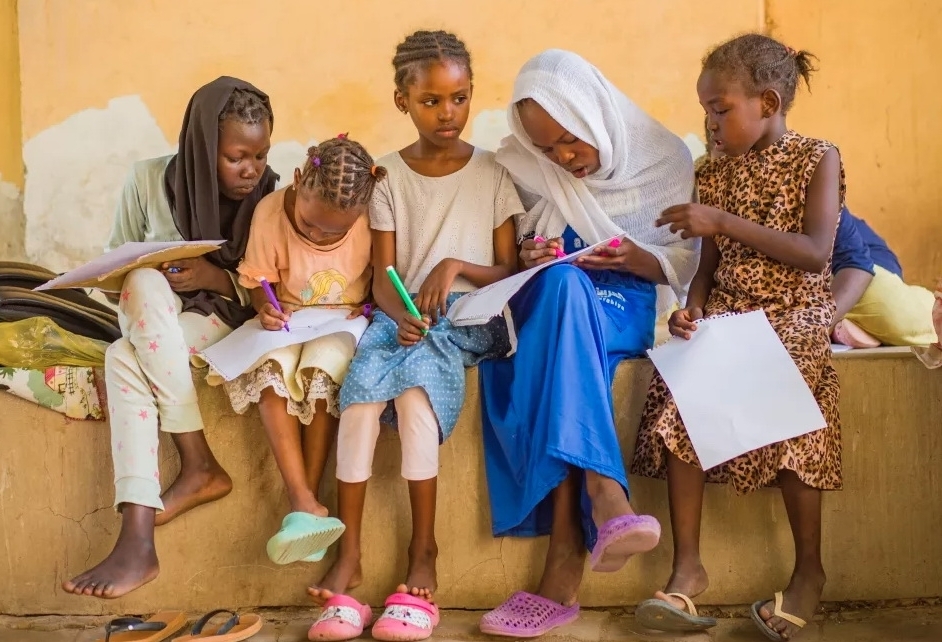



Over 90 pct of Sudanese school-age children deprived of formal education due to conflict: UNICEF

Baku, April 17, AZERTAC
The year-long conflict between the Sudanese Armed Forces (SAF) and the paramilitary Rapid Support Forces (RSF) has resulted in the disruption of formal education for more than 90 percent of the country's 19 million school-age children, Xinhua reports citing the latest estimates from the United Nations Children's Fund (UNICEF).
"Sudan now has one of the worst education crises in the world," UNICEF said in its latest report on Sunday. "The ongoing disruption to education will result in a generational crisis for Sudan."
On the one hand, the ongoing armed conflict in Sudan has led to a massive destruction in the education establishment.
According to official statistics of Sudan's Ministry of Higher Education, the war has caused over 100 public and private universities to close, and destroyed a large number of universities and higher institutions.
In a recent press statement, Sudanese Minister of Education Mahmoud Siral-Khatim Al-Houri revealed that 40 percent of the educational institutions in Khartoum State, where the war erupted, have been destroyed and sabotaged.
Observers believed 75 percent of the educational institutions in Sudan have been destroyed.
In addition to infrastructure destruction, the war has killed and displaced the country's teachers and students.
At least 10 percent of the university's teaching staff are now displaced outside Sudan, said Al-Hafiz Khamis Ismail, spokesman of Zalingei University, in Zalingei, the capital city of Central Darfur State.
"The war also had a psychological impact on the students and their families because of the violence and looting they were exposed to," Assistant Professor at the Nile Valley University in Khartoum, Elham Sharif Daoud, told Xinhua.
According to Ahmed Omer Khojali, a journalist in the field of education, the ongoing armed conflict in Sudan has had a disastrous impact on education generally, and would seriously harm the future of an entire generation of students, as the three "fundamental pillars" in education were damaged by the war.
First, a number of educational establishments have been transformed into military barracks or shelters amid the conflict.
Second, "the conditions of teachers has also worsened, as the war has interrupted their salaries and even taken some of their lives," he said, adding that students, another critical element in education, were forced to flee to states neighboring Khartoum, or to seek refuge in other countries.
Despite wide recognition of an imperative resumption of study, experts believe there are a number of obstacles to overcome, and alternative solutions are needed.
"Innovative solutions must be found, including remote education, or moving universities to some neighboring countries," Ismail said.
For Daoud, she urged the Ministry of Education to devise modern means to resume education.
She referred to the experience of the University of Khartoum, which completed its students' courses online and held exams at the safe states by using the state universities as examination centers, calling for promoting such practices.
Moreover, she stressed the need to establish modern information centers in the universities to make online study feasible, and called for solving the problem of network and power disruption.
According to unofficial estimates, there are about 714,000 higher education students, and about 136 public and private universities and higher institutions in the country.
Since the conflict between the SAF and the RSF broke out on April 15, 2023, 14,790 fatalities have been recorded, while the number of people displaced inside and outside of Sudan has reached 8.2 million, a report by United Nations Office for the Coordination of Humanitarian Affairs showed Sunday.
Volkswagen profits fall in 'slow start to year'
Microsoft announces US$1.7 billion investment to advance Indonesia’s cloud and AI ambitions
Samsung reports a 10-fold increase in profit as AI drives rebound in memory chip market
Titanic's wealthiest passenger's gold pocket watch sells for record-breaking €1.4 million